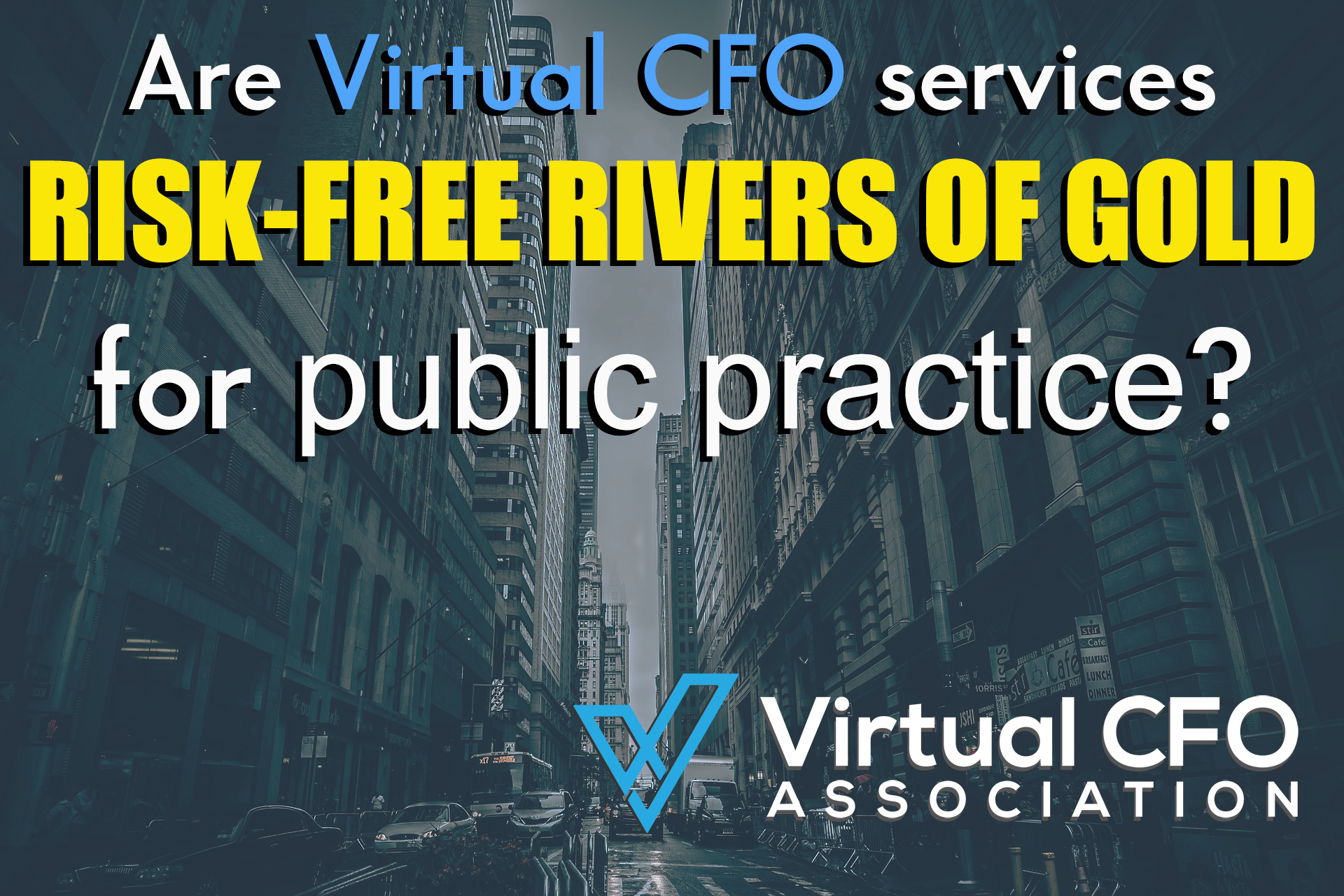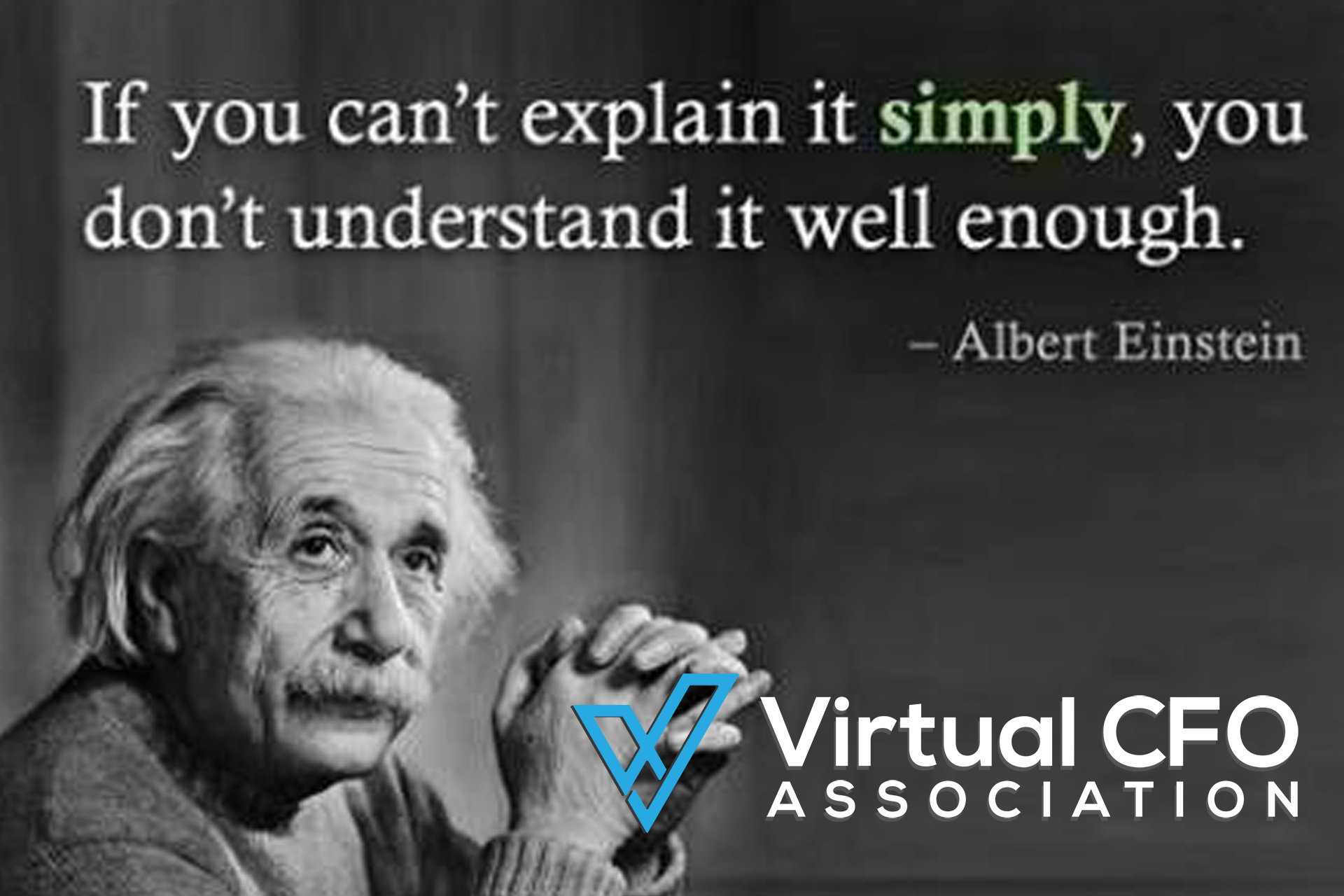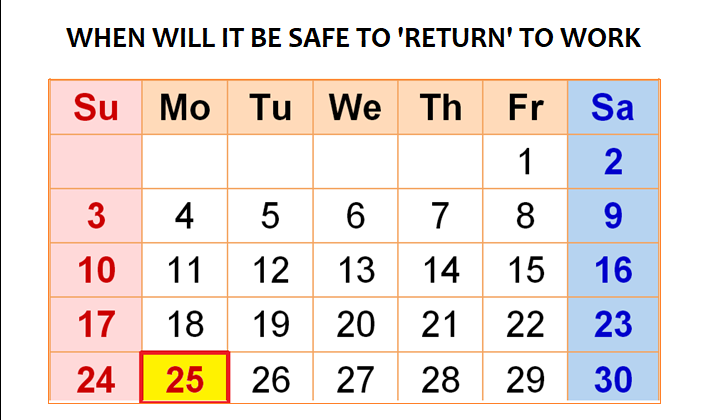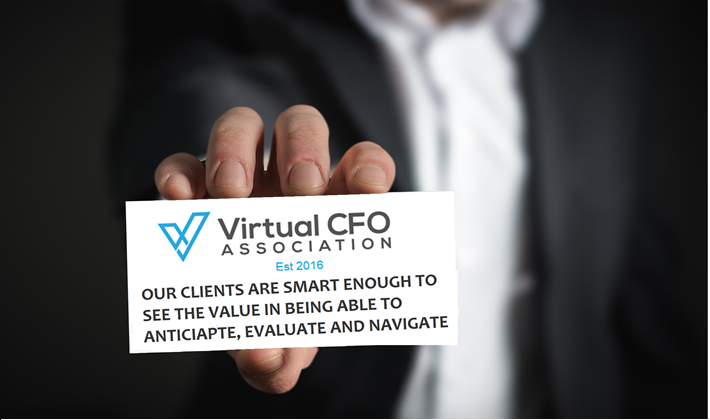Are Virtual CFO services risk-free rivers of gold for public practice?
Many accounting firms are looking to expand beyond traditional compliance work and grow their own businesses by offering Virtual CFO services.
It is hard to know whether this is in response to ‘fear peddling’ about the imminent death of compliance work, through client-driven demand, a result of just trying to capitalise on an opportunity or a combination of these.
Regardless, firms are looking to leverage the ‘Know Like Trust’ aspect of longstanding relationships, with clients that have outgrown their own rudimentary in-house financial management capabilities. These clients are often frustrated, worried and disappointed with the unreliable and unpredictable nature of their finance and know they need help. They wake up every day hoping to find a better way. It is a relatively easy ‘sell’ because people in this situation love ‘buying’ hope.
The biggest problems public practice firms encounter when trying to get Virtual CFO services off the ground are pricing, scoping and resourcing. This plays out as the client become very hard to ‘manage’ on the monthly agreed fee. It is common to hear that the client will not deal with the ‘senior’ allocated to the job but goes straight to the partner whose time has not been costed into the recurring fee. This is not the client being difficult, it is the client wanting to cut the ‘middle-man’ out.
The two things that strike me with this problem is that the CFO role is part of the internal capability of a business. Compliance work is external. It is always going to be hard scoping up work if you do not have any experience working within a similar type of company. It is also going to be hard to understand the dynamic nature of managing a business like theirs if you have never done it either. The client soon figures out the senior does not have the experience either and by having to go through the senior to get an answer from the partner wastes THEIR time.
I have heard people espouse the belief that industry vertical knowledge is not important. That a fresh set of eyes brings in a new perspective and challenges ingrained ideas and ‘group think’. However, if we transpose that argument, can you imagine a leg doctor pushing forward the idea that they would like to branch out into heart surgery because the profit margins are better and “we’ll we all went to Uni together didn’t we”.
Does not sound as convincing when you say it like that, does it?
I agree that perspective is important. But I would argue that insight from industry experience is more so. If you can combine both, then you have something immensely powerful.
So, are the rewards and why are firms chasing them? Margins at best would be double that of compliance. Let us use a compliance fee of $30K fee at 25% profit ($7.5K in profit) as the benchmark. Let us say you can get 40% margin doing the Virtual CFO service. You are taking on a huge amount of risk for at best an extra $4.5K per year.
Do the rewards justify the risks?
To answer that you need to understand what the risks are.
In the best-case scenario if ‘it all’ goes bad, the extra time and resources thrown at trying to ‘manage’ the client will reduce your margins. Any worse than that, the privilege of having a happy client might cost you a few dollars out of your own wallet.
If ‘it all’ goes very bad, you can lose a great tax client and the 25% bankable profit every year. You may as well add your reputation to the loss’s column, as clients that walk out the door are hardly going to remain as advocates. That might cost you some more clients as well.
If it goes extremely bad, the worst-case scenario must be that your client might lose their business and probably their family home as well.
So, ask yourself again, do the rewards justify the risks?
Clients can assume that your actions and their best interests directly correlate. You will understand why they trust you to put their needs before your own aspirations to grow your firm. So, what is the alternative?
Clients get the best outcome when they have a Virtual CFO working in harmony with their traditional compliance accountants. CFO’s through their knowledge and experience, are experts in the area of commercial financial management. CFO’s in industry consciously decide to move away from public practice and pursue a commercial path. Every big company has a CFO that has chosen this path and devoted the prime of their careers towards. Virtual CFO’s are ex-CFO’s that do the same thing, but on a part-time for SME’s who have not yet reached the scale to justify the investment in a full-time CFO.
Virtual CFO’s provide financial leadership for business and credibility with external stakeholders. A VCFO will be actively involved setting, reviewing and implementing strategy. They assist with establishing the reporting foundations, systems, strategic plans, budgets, forecasts as well as cash flows to ensure there is adequate funding in place to seize opportunities and grow the business. Importantly they communicate across the business, working as a key part of the management team to improve efficiency and reduce waste. Ultimately, they allow business owners to focus on their clients and grow their business.
Public practice firms can engage with Virtual CFO’s under a white label or sub-contract arrangement and still leverage their client relationship to make a return. The client gets the best outcome and the firm makes a return without the risks and distractions of trying to build a new business in a specialist area that they are not experts in. This is a win-win scenario.
This article was written by David Dillon, President of the Virtual CFO Association.
The Virtual CFO Association is an elite peer network, advocating and promoting the emerging Virtual CFO sector within the accounting profession. Collectively the association currently has over 500 years of industry experience, with highly qualified and experienced specialists spread across more than 20 industry verticals.





